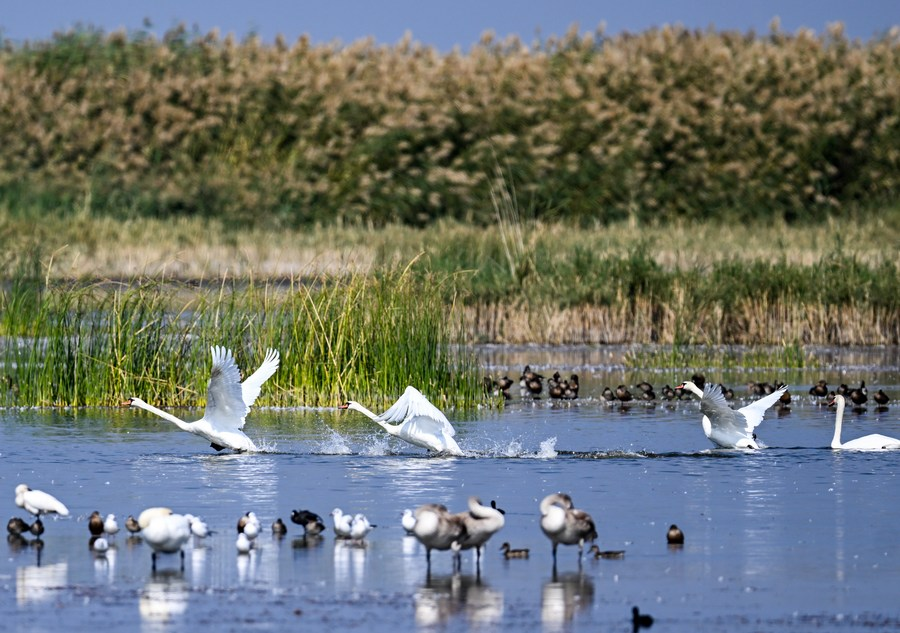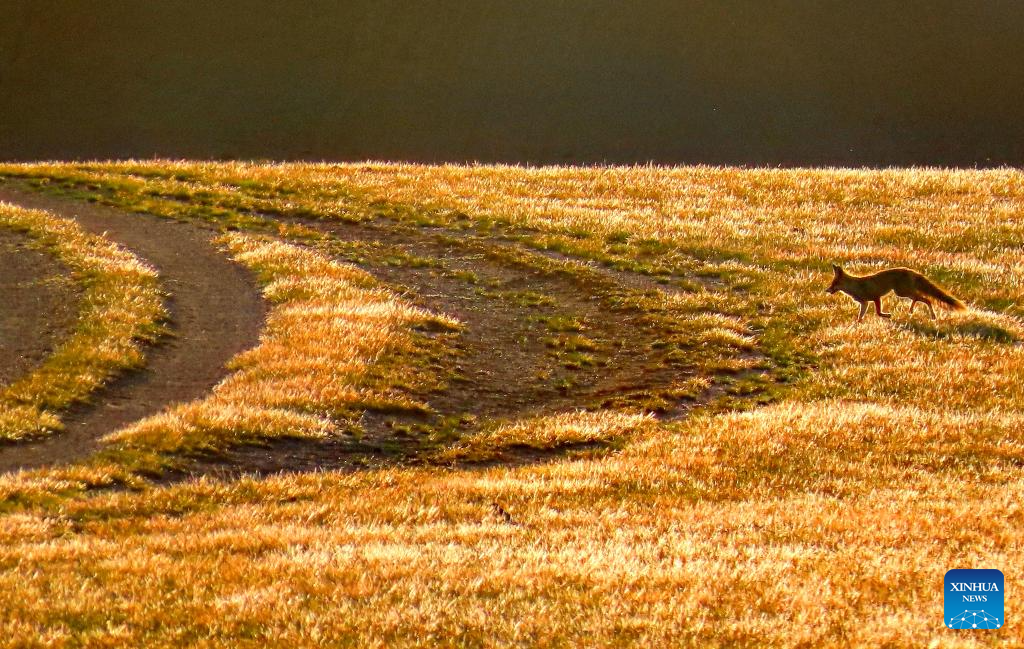World Wildlife Day 2024 | Connecting people and planet, in China and Yanyuan
Mar 03, 2024
Photo: Xinhua/Chen Bin
Editor's note: The theme for World Wildlife Day 2024 is "Connecting People and Planet: Exploring Digital Innovation in Wildlife Conservation." In this essay, Jawad Shabbir, a Pakistani Ph.D. scholar at the School of Earth and Space Science at Peking University, offers his insights on the wildlife conservative efforts in China and at Peking University (PKU).
Peking University, March 3, 2024: On Dec. 20, 2013, the UN designated March 3 as World Wildlife Day, marking it as an official UN observance. The significance of this date stems from the UN General Assembly's adoption of the Convention on International Trade in Endangered Species of Wild Fauna and Flora (CITES) on the same day. This resolution aimed to combat the illegal poaching and trafficking of the world's endangered species.
Wildlife is vital to various aspects of human existence, playing an indispensable role in maintaining the harmony and health of ecosystems. It serves as a symbol of Earth's rich diversity of life, upon which ecosystems depend for resilience and stability. The extinction of any species may disrupt this delicate equilibrium, impacting essential ecosystem functions such as pollination, seed distribution, pest control, and nutrient cycling, all of which are vital for agricultural and natural ecosystems' survival and productivity.
Wildlife also provides sustenance, medicine, and resources for numerous human societies globally, with many communities relying on sustainable harvesting practices for their survival. Beyond its practical utility, wildlife holds significant cultural value, deeply ingrained in folklore, mythology, and customs. And the observation and study of wildlife contribute to scientific breakthroughs and deepen our understanding of the natural world.
The intrinsic beauty of wildlife not only enhances the natural world but also offers mental health benefits through appreciation and observation. Additionally, wildlife serves as a valuable educational resource, teaching us about the intricacies of ecosystems and the interdependence of all life forms.
Forests, home to a vast array of wildlife, play a crucial role in mitigating climate change by absorbing and storing carbon dioxide. Wildlife-based tourism, including safaris and ecotourism, brings substantial economic benefits to many regions, emphasizing the economic importance of maintaining wildlife habitats.
China's Significance in Wildlife Conservation
China, with its rich biodiversity hosting iconic and endangered species like giant pandas, snow leopards, and Asian elephants, holds immense responsibility in global wildlife conservation efforts. The nation has significantly expanded its protected areas and implemented restrictions on the import of ivory, making strides in combating the illicit trade of tiger parts and rhino horns. Public awareness campaigns have been instrumental in fostering appreciation for wildlife and curbing illegal trade practices.
Peking University's Role in Wildlife Conservation
Peking University (PKU) stands as a key player in wildlife conservation, contributing across various domains:
Research and Education: PKU hosts esteemed institutions focusing on wildlife research and offers programs in wildlife biology and conservation. Researchers and students actively engage in local conservation projects, including efforts to conserve the giant panda and other endangered species, as well as habitat protection and restoration initiatives. (learn more about PKU's efforts here)
Policy Advocacy: PKU researchers provide evidence-based recommendations to influence wildlife conservation policies and participate in public outreach campaigns to raise awareness.
International Collaboration: PKU collaborates with international research institutions and conservation organizations, facilitating knowledge exchange and sharing best practices on a global scale.
Despite significant progress and efforts, wildlife conservation in China remains a multifaceted challenge. Addressing issues such as habitat loss, poaching, and human-wildlife conflicts requires ongoing efforts.
Safeguarding wildlife is paramount for the long-term health and sustainability of our planet. Conservation initiatives must address threats such as habitat destruction, pollution, climate change, and wildlife trafficking. Collaboration at the global level, coupled with stringent law enforcement and promotion of sustainable alternatives, is essential to combat wildlife crime and protect our natural heritage for future generations.
Written by: Jawad Shabbir
Edited by: Dennis Meng
Photos by: Xinhua News, Ma Chao



